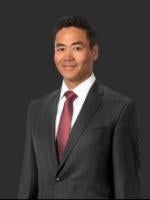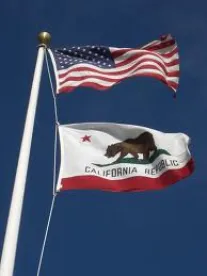In the wake of the California Supreme Court’s decision further clarifying whether the state’s wage statement law applies to certain employees residing in California, the Ninth Circuit elaborated that federal law does not override state law on this issue. The circuit court decision builds further upon the California court’s development of the Ward test, which uses an employee’s principal place of work in California as the decisive factor. In a practical sense, the circuit court prevented a potential collision course between federal law and state law.
California Supreme Court and the Ward Test
Before 2020, visibility was clouded for employers with employees that routinely conducted interstate travel for work. The questions was, “under Labor Code section 226, were these California employees entitled to receive detailed pay stub or wage statements, irrespective of the amount of actual time worked in the Golden State?” The California Supreme Court developed the Ward test that clarified but did not resolve this issue. Presently, if an employee works a majority of the time in California, his or her principal place of work is California and Labor Code section 226 must apply. Alternatively, with respect to interstate transportation workers who do not work a majority of the time in any one state, California is the principal place of work if the worker has his or her base of work operations in California. The state Supreme Court further specified that an employee is “based in” California for purposes of the Ward test if the employee performs at least some work in the state and “California serves as the physical location where the worker presents himself or herself to begin work.”
Ninth Circuit Denying Federal Law Preemption
United challenged the Ward test’s applicability to the plaintiff class of pilots and flight attendants who reside in California. It argued that three federal laws – the dormant Commerce Clause, the Airline Deregulation Act of 1978 and the Railway Labor Act – each provided a basis for not having to comply with the California wage statement law for these employees. The circuit court disagreed and grounded each of United’s arguments.
The dormant Commerce Clause argument did not fly because § 226 did not discriminate against or directly regulate interstate commerce in anyway, according to the circuit court. It concluded that this state law imposed a burden on private employers evenhandedly, regardless of their in-state or out-of-state status. It also dismissed United’s concern that § 226 was a “clearly excessive” burden on interstate commerce in relation to its local benefits. United could easily comply with state law by issuing compliant pay stubs and at worst over-comply, reasoned the court.
The Airline Deregulation Act did not cross routes with § 226 because there was only a “tenuous, remote, or peripheral” connection with United’s prices, routes, and services. The court stated that United had not presented evidence that the costs of tracking pilots’ and flight attendants’ time spent working in different states would have a significant impact on United’s operations. Lastly, the court quickly disposed of United’s argument that the Railway Labor Act preempted state law. The plaintiffs’ claims were not grounded in the collective bargaining agreements covering pilots and flight attendants, nor was interpretation of these agreements needed to resolve the plaintiffs’ claims.
Ultimately, the Ninth Circuit directed the claims back to their originating district courts in California because the trial courts are in the best position to rule on the merit of the case. For employers tracking this case, the clarification by the Ninth Circuit will help prepare them for a smooth landing on the issue of whether it must provide interstate workers with wage statements compliant with the stringent requirements of § 226.




 />i
/>i

